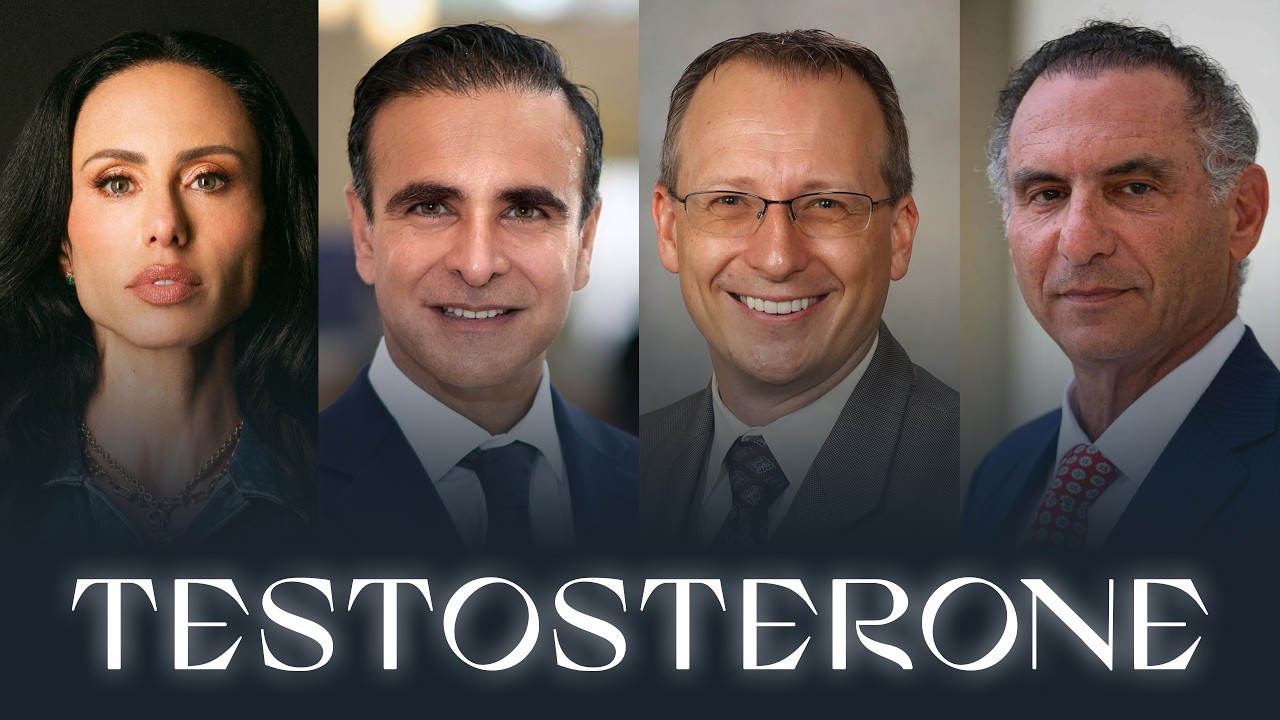- Understanding Testosterone Replacement Therapy (TRT)
- Safe Dosing Guidelines for TRT
- Potential Risks and Side Effects of TRT
- How TRT can Influence Longevity
- Nutritional Strategies for Supporting TRT
Testosterone Replacement Therapy (TRT) has garnered significant attention over the past few years as awareness of hormonal health has increased. Many individuals, particularly men, may experience a decline in testosterone levels due to various factors, including aging, lifestyle, and chronic health conditions. TRT aims to restore hormonal balance, metabolically enhancing energy, mood, muscular strength, and overall quality of life.
Understanding the fundamentals of TRT is essential. Testosterone plays a pivotal role in several bodily functions, such as muscle mass, fat distribution, bone density, and even mood regulation. Low testosterone, or hypogonadism, can lead to a range of issues like fatigue, decreased libido, and cognitive decline. Although TRT can be beneficial, it is critical that individuals approach this therapy with a comprehensive understanding of its workings.
Safe dosing is a primary concern for those considering TRT. The appropriate dosage varies among individuals based on age, health status, and individual testosterone levels. Generally, medical professionals recommend starting with the lowest effective dose. Various forms of testosterone are available, including injections, gels, patches, and pills. Injectables are often recommended for their more controlled release into the bloodstream; however, this method may require regular visits to a healthcare provider. Gels and patches allow for at-home administration but may present challenges, such as transferring the hormone to another person through contact.
Monitoring levels regularly is crucial. Health professionals often recommend periodic blood tests to assess testosterone levels after initiating treatment. This helps to identify if adjustments are necessary. The aim is always to maintain testosterone levels within a normal range to minimize risks associated with overdosing.
Like all therapies, TRT comes with potential risks and side effects. Common issues include acne, sleep apnea, and potential cardiovascular complications. Research indicates that individuals on TRT may experience an increased risk of blood clots and prostate issues. Regular check-ups are imperative for people on TRT to track these potential risks. Prostate health becomes particularly important since testosterone can stimulate the growth of prostate cells.
Exploring how TRT influences longevity, one must consider its impact on overall health markers. Testosterone not only affects physical strength but also plays a role in metabolic processes. Low testosterone is often associated with obesity and metabolic syndrome, which can lead to serious conditions such as type 2 diabetes and heart disease. Restoration of testosterone through TRT might enhance insulin sensitivity, facilitating better glucose metabolism, and potentially slowing down the progression of these diseases.
Nutrition plays a fundamental role in maximizing the benefits of TRT. A balanced diet can complement hormonal therapies. Nutrients such as omega-3 fatty acids, antioxidants, and magnesium support hormonal functions and metabolic health. Foods high in zinc, like oysters and lean meats, are particularly beneficial, as zinc plays a vital role in testosterone synthesis.
Increasing protein intake can further support muscle growth, enhancing the benefits of testosterone. Lean proteins, healthy fats, and complex carbohydrates should be at the forefront of a diet aimed at bolstering the effects of TRT. Furthermore, incorporating resistance training and cardiovascular exercise can amplify the results of TRT, enhancing muscle mass and overall physical conditioning.
Understanding the available options for TRT is vital for informed decision-making. Alongside traditional testosterone modalities, emerging therapies are also being studied. These include selective androgen receptor modulators (SARMs), which may offer similar benefits with fewer side effects. However, they remain largely experimental and are not yet mainstream therapeutic options.
Before embarking on TRT, it is prudent for individuals to consult with a healthcare provider. A comprehensive evaluation will help determine whether TRT is appropriate based on personal health history and current testosterone levels. Additionally, patients should discuss potential risks and benefits thoroughly to align expectations with realistic outcomes.
Incorporating lifestyle modifications, such as regular exercise, healthy eating, and adequate sleep, can enhance the efficacy of TRT. A holistic approach can considerably improve overall well-being and help prolong the benefits of treatment. Sleep has a significant influence on testosterone production, so prioritizing sleep hygiene can directly affect hormonal health.
Moreover, stress management techniques are widely recommended. Chronic stress can lead to elevated cortisol levels, which negatively impact testosterone production. Engaging in mindfulness practices, yoga, or simply regular leisure activities can significantly help manage stress and, therefore, improve hormonal balance.
Monitoring progress during TRT involves tracking health markers, including body composition, mood, and overall energy levels. Keeping a health diary may be beneficial for individuals, allowing them to document changes or side effects they may experience. This information can be crucial during follow-up appointments, enabling healthcare providers to tailor treatment plans effectively.
The landscape surrounding TRT continues to evolve in accordance with new research findings. As understanding grows about the hormonal interplay influencing metabolism and age-related declines, future therapies may become more personalized. Innovations in biotechnology may pave the way for advanced delivery systems and formulations, enhancing treatment precision.
Individuals contemplating TRT must approach the process informed and cautious. Gaining insights into safe dosing, understanding potential risks, and developing supportive dietary strategies can facilitate a smoother transition. Embracing a proactive approach to health, individuals can navigate TRT successfully, attaining the desired outcomes in hormonal balance and longevity.
Scientific literacy around TRT has the power to reshape conversations about aging and hormonal health. Continuous discussions about the implications of TRT in terms of metabolic health, quality of life, and longevity are instrumental in fostering a health-conscious society. Educational resources, community support groups, and professional guidance can all contribute to informed decision-making, allowing individuals to advance not only personal health but also public understanding of this therapy.
RACTING informed and precise decisions are essential for anyone considering TRT. By understanding the mechanics of testosterone therapy, individual variations in safe dosing, and the significance of a supportive dietary regimen, individuals are better positioned to achieve their health goals sustainably.
*****
Source Description
Pre-Order The Forever Strong PLAYBOOK and receive exclusive bonuses: https://drgabriellelyon.com/playbook/
Want ad-free episodes, exclusives and access to community Q&As? Subscribe to Forever Strong Insider: https://foreverstrong.supercast.com
In this compilation episode, Dr. Gabrielle Lyon is joined by the top experts in testosterone and men’s health treatments.
You’ll learn:
– Why aging alone doesn’t drop T levels and why acquisition of conditions like obesity is the real culprit.
– Why the standard “low T” cutoff is misleading and why you must check your Free Testosterone.
– How erectile dysfunction is a sensitive marker of overall health and heart risk.
– The efficacy of Cialis/Viagra for both erections and cardiac protection, and the risks of unchecked influencer advice on steroids.
– The direct link between muscle mass, exercise, and sexual function—and why the penis is the “first to go” when overall health declines.
Chapter Markers:
0:00 – Testosterone is a Brain Hormone
0:40 – Debunking the Myth: Male Menopause (Andropause) Doesn’t Exist
1:33 – The Dangers of Unchecked Influencer Advice on Testosterone
3:07 – Defining Testosterone Deficiency: Symptoms vs. Signs
5:10 – The Arbitrary Number: Why Guidelines Disagree on Low T
8:29 – Free Testosterone: The Most Reliable Indicator of Male Health
15:28 – TRT vs. Steroids: Defining the Line and Risks
18:59 – The Real Risks of TRT: Infertility and Hematocrit
22:36 – The Shocking Backstory: Challenging the Prostate Cancer Myth
26:40 – Erectile Dysfunction (ED) and Lifestyle Modification
29:21 – Shockwave Therapy for ED: The Science and the Cash Business
33:53 – Penile Tissue Atrophy and Venous Leak
37:25 – The Role of Muscle Mass, Sarcopenia, and Sexual Function
39:41 – The Single Best Marker for Male Health: Erectile Function
42:02 – The Science of Cialis and Viagra (PDE5 Inhibitors)
45:49 – The Viagra Story: From Heart Drug to ED Cure
50:50 – Tadalafil (Cialis) as a Triple-Threat Drug (Cardiac, Urinary, Sexual)
53:57 – The Role of Testosterone in Female Sexual Function
55:20 – Hypogonadism: Diagnosis, Treatment, and Fertility Risk
About the guests:
Dr. Abraham Morgentaler is an Associate Clinical Professor of Urology at Harvard Medical School and founder of Men’s Health Boston. He is an internationally recognized expert in men’s health, particularly known for his pioneering work in testosterone therapy. Dr. Morgentaler is credited with reversing the long-held belief that testosterone therapy causes prostate cancer and is the author of several books on men’s health.
– YouTube – https://www.youtube.com/@thesexdoctorspod
– LinkedIn – https://www.linkedin.com/in/abraham-morgentaler-md-81628b6/
– T4L Education – https://t4leducation.com/
– X/Twitter – https://x.com/DrMorgentaler
Dr. Tobias Kohler is the co-founder of the Erectile Restoration Outcomes Study (EROS) penile implant registry. In addition to his clinical and research activities, Dr. Kohler is active in education, providing mentorship to residents and fellows.
– Mayo Clinic – https://www.mayoclinic.org/biographies/kohler-tobias-s-m-d-m-p-h/bio-20382084
– ResearchGate – https://www.researchgate.net/profile/Tobias-Koehler-4
– LinkedIn – https://www.linkedin.com/in/tobias-k%C3%B6hler-58637667
– X(Twitter) – https://x.com/sexhealthmd
Dr. Mohit Khera, M.D., M.B.A., M.P.H., is a urologist and professor at Baylor College of Medicine. He is an expert in male and female sexual dysfunction and testosterone replacement therapy, and his work focuses on male infertility, sexual dysfunction, and declining testosterone levels. He is also the President of the Sexual Medicine Society of North America.
– X(Twitter) – https://twitter.com/DrMohitKhera
– Instagram – https://www.instagram.com/drmohitkhera/
– Website – https://drmohitkhera.com/
Thank you to our sponsors:
– Hollow Socks – Buy 3, Get 3 Free at https://hollowsocks.com
– Cozy Earth – https://cozyearth.com/DRLYON for up to 40% off
– Timeline – Get 20% off your order at https://timeline.com/LYON
– Our Place – Save up to 35% site-wide through December 2nd at https://fromourplace.com
Disclaimers:
The Dr. Gabrielle Lyon Podcast and YouTube are for general information purposes only and do not constitute the practice of medicine, nursing, or other professional health care services, including the giving of medical advice, and no doctor/patient relationship is formed. The use of information on this podcast, YouTube, or materials linked from this podcast or YouTube is at the user’s own risk. The content of this podcast is not intended to be a substitute for professional medical advice, diagnosis, or treatment. Users should not disregard or delay in obtaining medical advice for any medical condition they may have and should seek the assistance of their health care professional for any such conditions.
This episode includes paid sponsorships.

